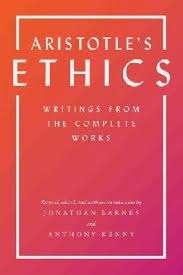Aristotle's Ethics
Writings from the Complete Works

Editorial Princeton
Fecha de edición julio 2014 · Edición nº 1
Idioma inglés
EAN 9780691158464
528 páginas
Libro
encuadernado en tapa blanda
Resumen del libro
Aristotles moral philosophy is a pillar of Western ethical thought. It bequeathed to the world an emphasis on virtues and vices, happiness as well-being or a life well lived, and rationally motivated action as a mean between extremes. Its influence was felt well beyond antiquity into the Middle Ages, particularly through the writings of St. Thomas Aquinas. In the past century, with the rise of virtue theory in moral philosophy, Aristotles ethics has been revived as a source of insight and interest. While most attention has traditionally focused on Aristotles famous Nicomachean Ethics, there are several other works written by or attributed to Aristotle that illuminate his ethics: the Eudemian Ethics, the Magna Moralia, and Virtues and Vices.
This book brings together all four of these important texts, in thoroughly revised versions of the translations found in the authoritative complete works universally recognized as the standard English edition. Edited and introduced by two of the worlds leading scholars of ancient philosophy, this is an essential volume for anyone interested in the ethical thought of one of the most important philosophers in the Western tradition.
Biografía del autor
Aristóteles representa una figura indiscutible en la historia del pensamiento científico y filosófico. Su sistema, sus ideas, sus obra, han estado presentes en las diversas tendencias filosóficas de la cultura occidental.








